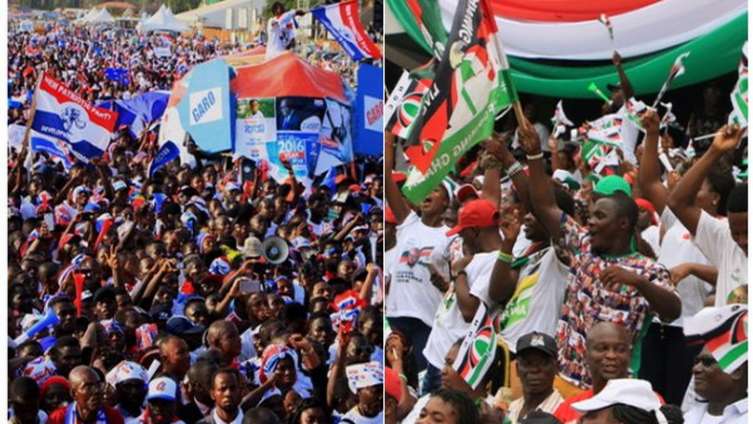Partisan politics in Ghana has been a dominant feature of the country’s political landscape since it transitioned to democracy in 1992.
The country has a multi-party system, with two dominant parties – the National Democratic Congress (NDC) and the New Patriotic Party (NPP) – having alternated power since then.
Partisan politics in Ghana is characterized by intense rivalry and polarization between the two dominant parties where supporters of both parties vote for them regardless of their performance in governance.
This has led to a winner-takes-all approach, where the party in power seeks to consolidate its power and exclude the opposition from decision-making processes which has resulted in a lack of consensus-building and inclusive governance.
One of the significant effects of partisan politics in Ghana is the politicization of state institutions as state institutions such as the judiciary, electoral commission, and security agencies have been accused of being biased towards the ruling party.
Another effect of partisan politics in Ghana is the divisive nature of political discourse as political debates and discussions are often characterized by insults, name-calling, and personal attacks, rather than constructive engagement and policy-based discussions.
Furthermore, partisan politics in Ghana has led to a lack of accountability and transparency in government.
As is often the case, the ruling party often uses its majority in parliament to push through policies and appointments without proper scrutiny and debate which has led to corruption and abuse of power, as those in power use their position for personal gain.
However, Ghana’s political landscape has undergone a significant transformation, with a notable shift away from intense partisanship.
The current hung Parliament, where no single party holds a majority, has created a more balanced and accountable political environment that enables the opposition to more effectively scrutinize the government’s actions, promoting a more effective checks-and-balances system.
While remnants of partisanship still exist, this development marks a positive step towards a more inclusive and consensus-driven political culture.
The New Model
According to Mussa Dankwah of Global InfoAnalytics, Ghanaian voters have been observed to prioritize the personal characteristics and traits of political candidates over their party affiliations when making electoral decisions.

This, he indicated has led to a focus on the individual politicians’ leadership qualities, policy proposals, and track records, rather than solely considering their party membership.
“I think that is the misconception political analysts have been carrying in this country for long. When it comes to elections, the individuals matter. We are moving into a system where the parties are no longer religious bodies, they are just parties… Those days where people are extremely partisan are waning and you must realize that. So he can be NPP but I’ll say no, this guy is good so I’ll vote for him”.
Mussa Dankwah
Furthermore, Dr. Kwame Amakye Boateng, a Political Scientist, emphasized that the personality of the individual matters in an election. He noted that the individual’s strong commitment to the welfare of the people he or she represents influences the choices of electorates.
This shift in voter behavior suggests a more nuanced and informed electorate, one that is increasingly looking beyond party loyalty and seeking effective leadership and representation.
It is therefore imperative that Ghanaians desist from partisan politics and focus more on the leadership qualities of individual politicians to ensure the progress and development of the country.
Ghanaians must also adopt a more inclusive and consensus-driven approach to politics, which prioritizes the interests of all citizens, regardless of their political affiliations, and also ensures transparency and accountability from politicians.
As such, having a more inclusive political environment based on rational choice rather than partisanship will strengthen state institutions and ensure their independence and impartiality, to prevent the politicization of these institutions.
Hence, political education and awareness must be promoted among citizens, to ensure that they are informed and engaged in the political process which will help them make rational decisions.



















